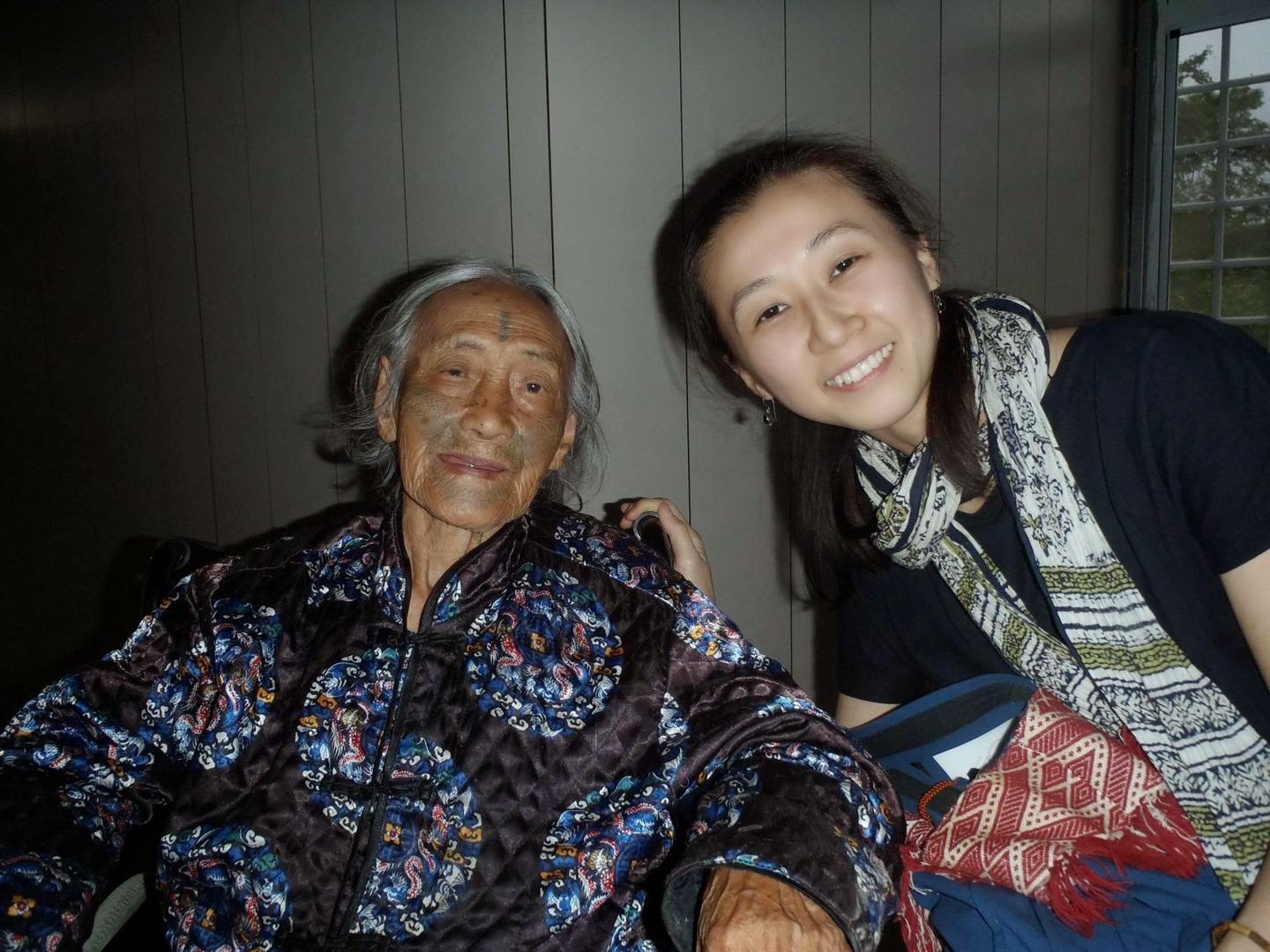星期天晚上在中山堂聽了一場…很特別的演奏,「臺灣原民古調與非洲部落戰鼓」,多吸引人的!桑布伊與雲力思兩位的演唱,錯過一次,絕不能再錯過!
入堂看,ㄟ,怪,舞臺擠的滿滿的,好多椅子。一回兒,臺北市立國樂團上臺了,另配六個大提琴、四個低音大提琴、豎琴等等。他們演奏了一個非常前衛的樂曲,打破你對國樂的囿限:你以為國樂要有旋律嗎?和音?節奏?錯了!他們演奏的曲子聽不出旋律,主題、音準、節奏的枷鎖也打破了,他們就力力啦啦好久好久,證明了國樂器可以發出各種你不習慣的聲音。
終于演完了。幾位布農青年站出來了,排好,開口,唱出了臺灣山林的靈,很多觀眾眼眶馬上紅了。聽完第一個前衛國樂曲子,感覺滿身蚊蟲叮,布農歌唱好比澆了一桶涼爽山泉水,全身舒暢。接著八部合音,那麼簡單真實,感人啊!
非洲鼓響了,桑布伊、雲力思、少妮瑤、少浪即興,音被鼓聲壓過。只好等下半場。
中場休息看節目單,很訝異,第一首曲子名為「靈橋」!怎麼可能?這是hongu utux na Tayal泛泰雅的靈橋?我一點也聽不出達彥的壯烈、喜笑、直樸、大方!我假想,如果我們部落的耆老聽了,會感到認同嗎?一笑:我想,如果給我乾爸達利聽了,跟他說是靈橋,他一定會揮拳打人。
下半場開始,國樂團又上臺了,舞臺擠的滿滿的,今天全團到齊沒有人請假!雲力思、桑布伊、少浪出來,站舞臺最前面,幾乎沒地方站。
這是一個很勇敢的嘗試,國樂配原住民歌曲。但出了兩個問題:第一,原住民歌可以獨立,配樂根本是多餘的,他們唱就好了,不需要伴奏。第二,聽不到!國樂團太多人,聽不到原住民的聲音!你想,光是大提琴就六個,怎麼能聽到那幾位唱歌呢?國樂團如果只派七八個樂師上臺,還勉強可以。
排灣的少妮瑤,小小一隻,吹了好大一枝鼻笛(桑布伊的鼻笛租金兩百五的話,這枝少說要四百五!),幸虧沒伴奏,所以聽得到,音樂玄妙多變,亙古遼闊,有機會聽真是福氣。
雲力思、桑布伊是世界寶級的歌喉,但對不起,幾乎聽不到,被國樂團壓過。
這晚上的演奏意料未及。但最後,我想,其實他們這個演出也反映了臺灣的事實:舞臺被中國文化佔滿了,原住民擠到一邊,雖然努力唱優雅的古調,但是聽不到他們的聲音。
On Sunday night, we went to a “A Dialogue
between Ancestral Spirits: Taiwanese Aboriginal Folk Tunes vs. African Drumming.”
I originally dismissed the vs. as a typical Taiwan misuse of the word, which
some suppose to mean ‘and’, but soon learned that they really did mean versus.
I was surprised to see the stage full of
chairs. Soon the Taipei Chinese Orchestra filled the stage, and brought along
six cellos, four basses, a harp, and other Western instruments.
They commenced to play a very avant garde
piece to break down your preconceptions of Chinese music. You thought Chinese
music was supposed to have a melody, a rhythm, some sort of structure? Wrong!
They proved that you can play classical Chinese musical instruments without any
regard to tune, theme, or harmony. They produced all sorts of unusual sounds
for a very long time and finally stopped. The audience, totally mystified,
politely clapped.
A group of young Bunung in traditional
dress strode onto the stage, took their positions, and the lead singer opened
his mouth. Out poured the purity and power of Taiwan’s mountains; many eyes in
the audience were full of tears. After the interminable nagging of the
orchestral piece, the Bunung brought freshness and relief. They sang their
famed eight part harmony, simple in structure but endlessly moving.
The African drums came into play, in an
improvised dialogue with Inka Mbing (Tayal), Sangpuy Katatepan Mavaliw (Pinuyumayan),
Sauniaw Tjuveljevelj (Paiwan), and Sawlang (Amis). The drums won.
During the intermission, I looked at the
program and was astonished to read that the orchestral piece was an
interpretation of Tayal spirit. I heard nothing in it that even remotely
reminded me of gaga na Tayal/Tayal spirit. I imagined what would be the
reaction of tribal elders to this piece: they would probably find nothing to
resonate with. I smiled to think what the reaction of my tribal father, Dali,
would be: he’d probably punch someone.
The Chinese Orchestra took the stage again,
leaving a thin edge for the aborigines to sing on. This was a brave attempt to
join Chinese music with Aboriginal singing, but failed on two parts. First,
aboriginal singing stands alone, and has no need for orchestral accompaniment. Second,
there were two many Chinese musicians, so you could barely hear the aborigines.
Inka and Sangpuy have voices that are
global treasures, but you could barely hear them over the accompaniment.
Friends sitting in the first row and in the balcony all had the same complaint,
so it wasn’t our seats. There were just too many people in the orchestra. If
they had pared it down to seven or eight musicians it would have been better.
Sauniaw, a delicate little Paiwan,
performed on a huge nose flute,fortunately with no accompaniment. I have
never heard the nose flute played with such mastery. A performance to relish!
All told, the concert was certainly not
what I expected. But looking back, I think it did portray a fact of life in Taiwan. The
stage was jam packed with Chinese culture which drowned out the thin line of
aborigines singing their hearts out.











